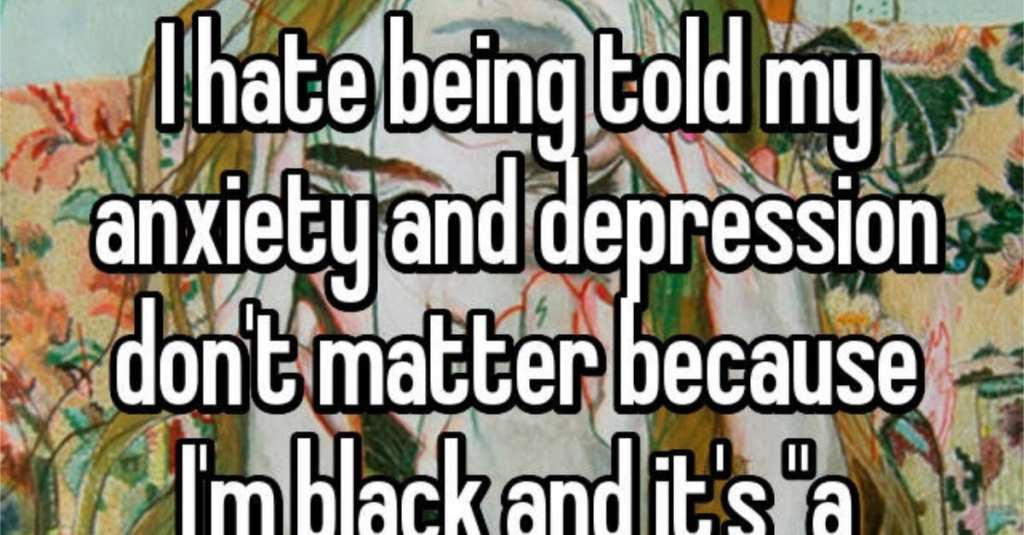According to BetterHelp.com almost 15 million Americans suffer from depression symptoms annually.
And those are just the ones reporting it.
Depression can hit anyone of any age, race, or religion. It doesn’t discriminate.
And yet, perhaps because their community has experienced so much trauma, the black community often doesn’t acknowledge the reality of mental health issues among black people.
But they are real and they are valid, and they can be caused by a variety of underlying problems, as these 12 posts demonstrate.
1. Sometimes it’s just the struggle of being black
Totally understandable given systemic issues of the day and all.
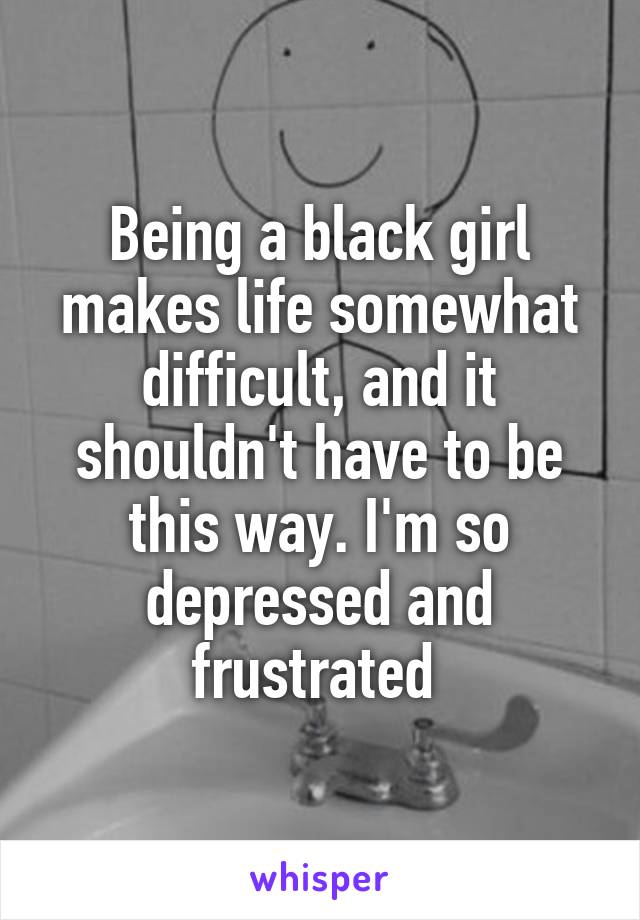
Image credit: Whisper
2. Societal prejudices may not be the cause
But they certainly don’t help make it better.
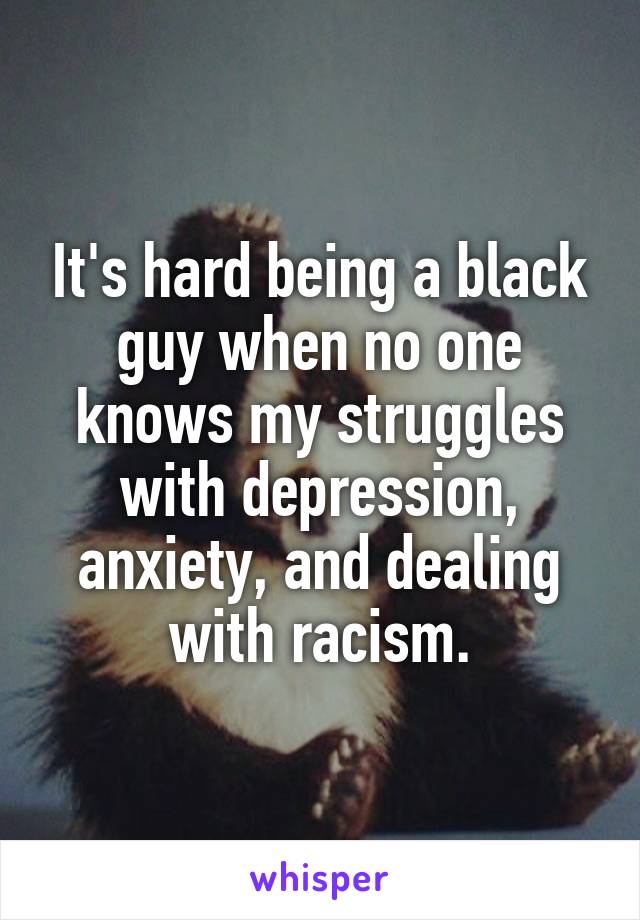
Image credit: Whisper
3. Others would argue, their race is not the source
And that is also completely valid. Humans get depressed. Fact.
This seems like a healthy perspective of a difficult issue.
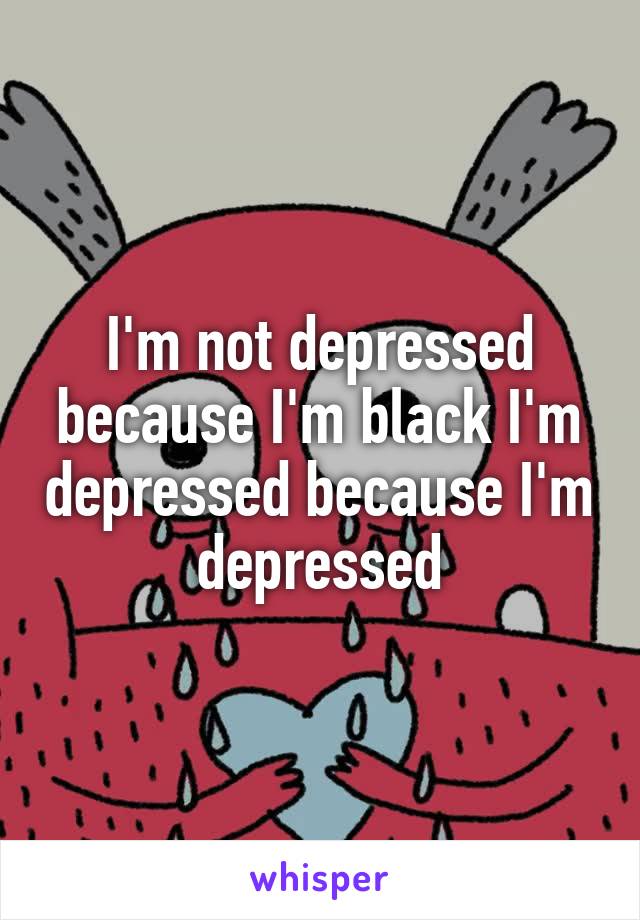
Image credit: Whisper
4. Sometimes there’s no reason, and sometimes there is
Disapproving parents, the number one reason as old as Shakespeare.
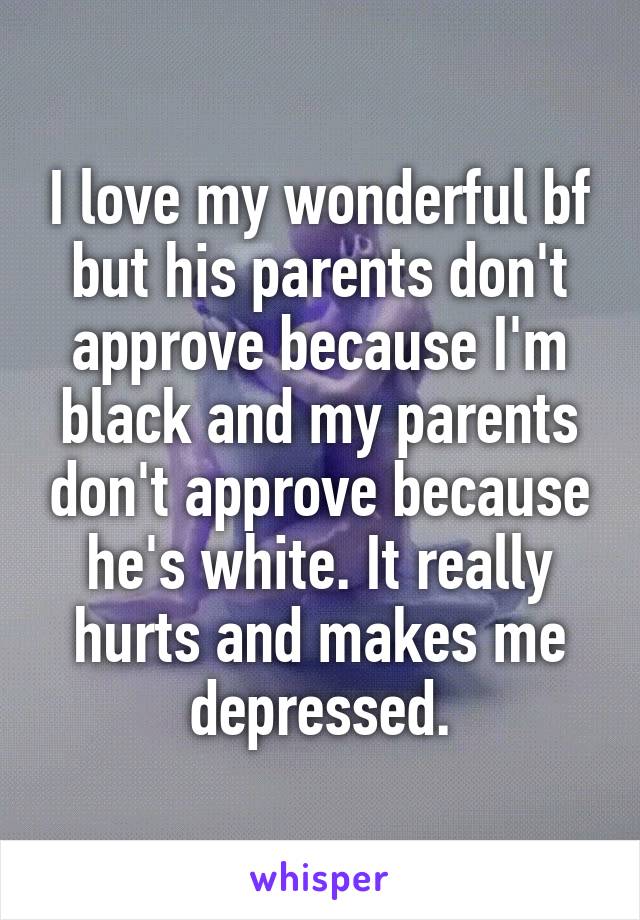
Image credit: Whisper
5. Sometimes it’s because people are the worst
I hope he doesn’t listen to them, and follows his dreams.
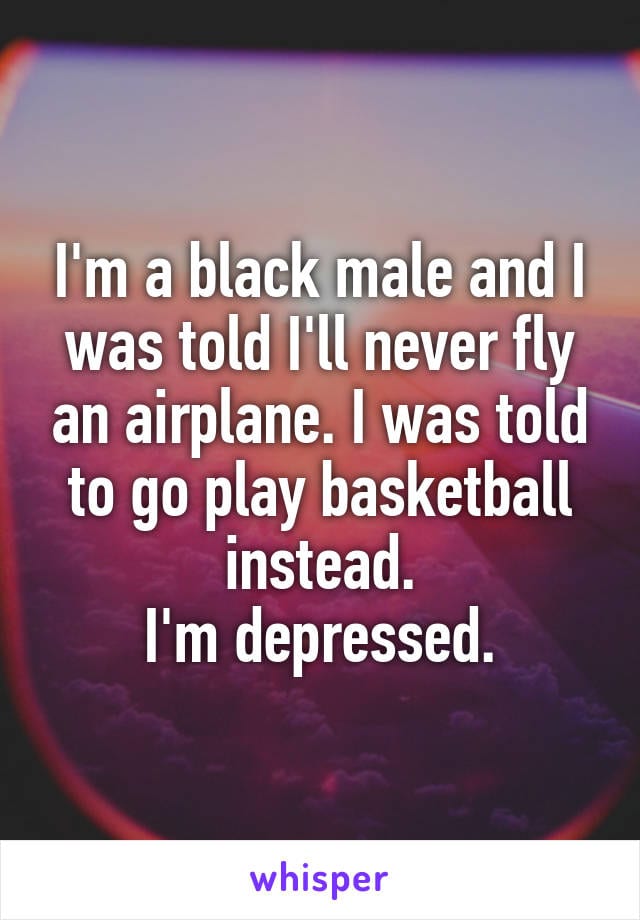
Image credit: Whisper
6. And sometimes it’s because the worst is all around
What a thing to have to face each day, torn between two cultures.
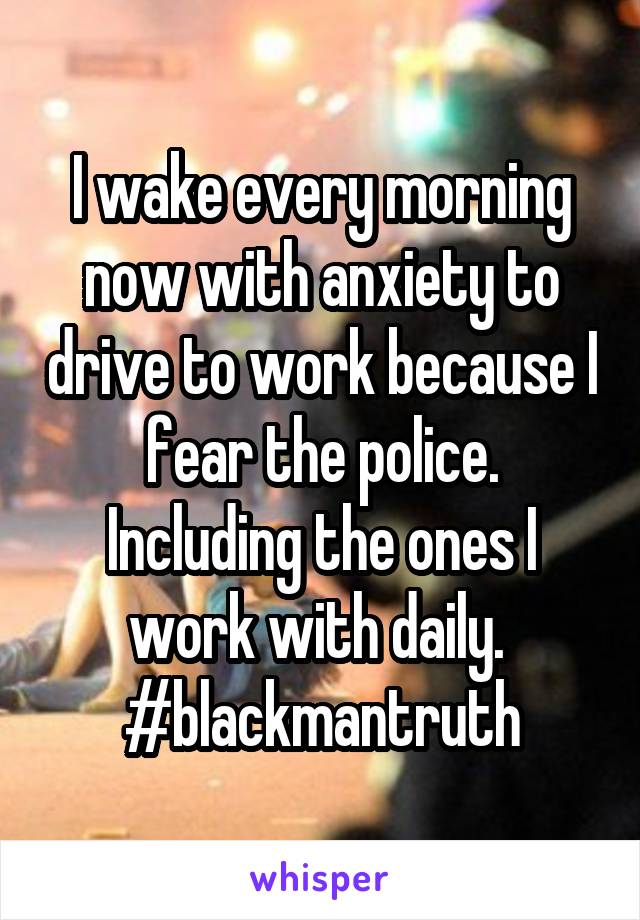
Image credit: Whisper
7. It can be so very lonely to feel unwanted
No one should have to feel this way.
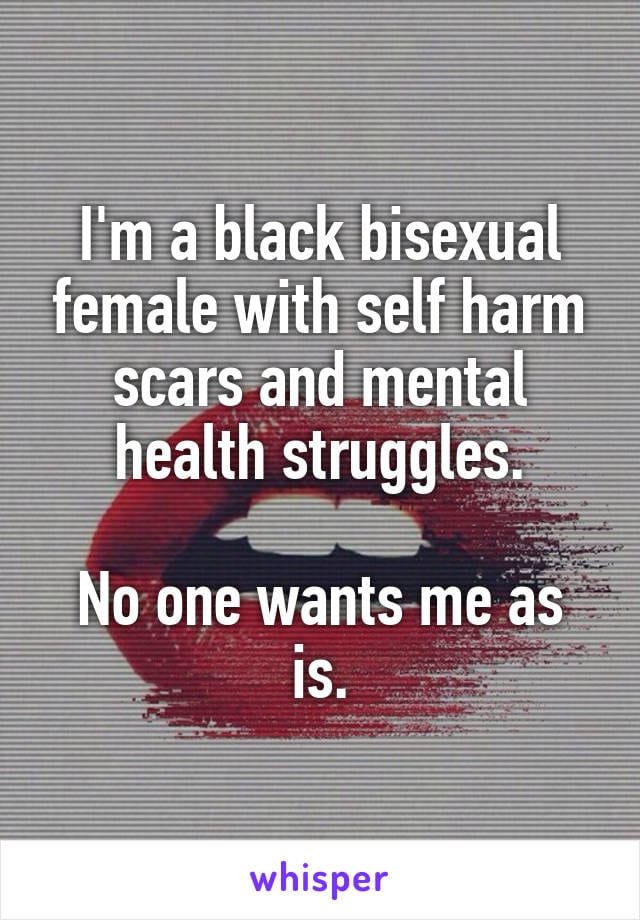
Image credit: Whisper
8. Believing you are unloved can make you feel superfluous
Just know that you are not alone.
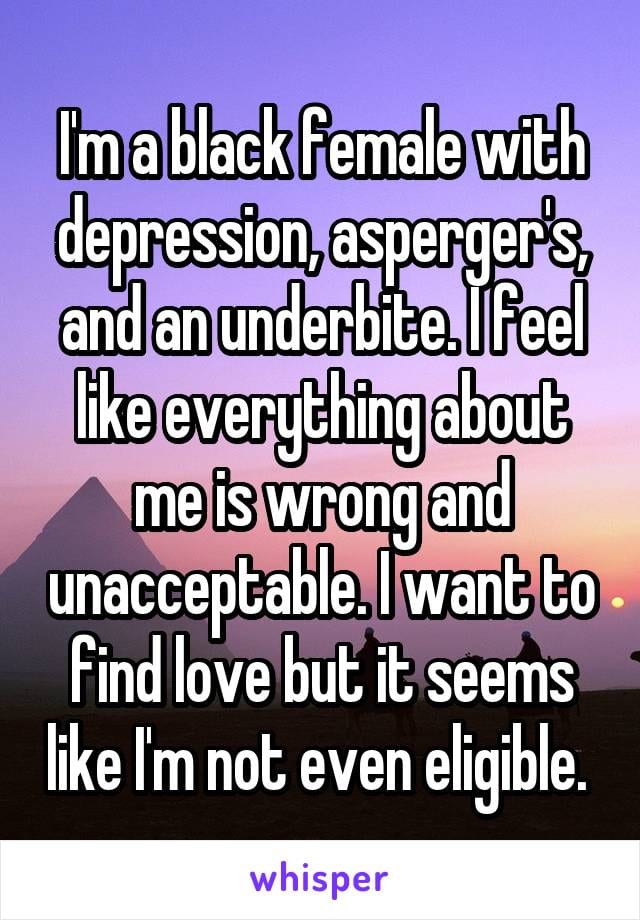
Image credit: Whisper
9. Especially when you just want to be yourself
But yourself is very different than everyone you know.
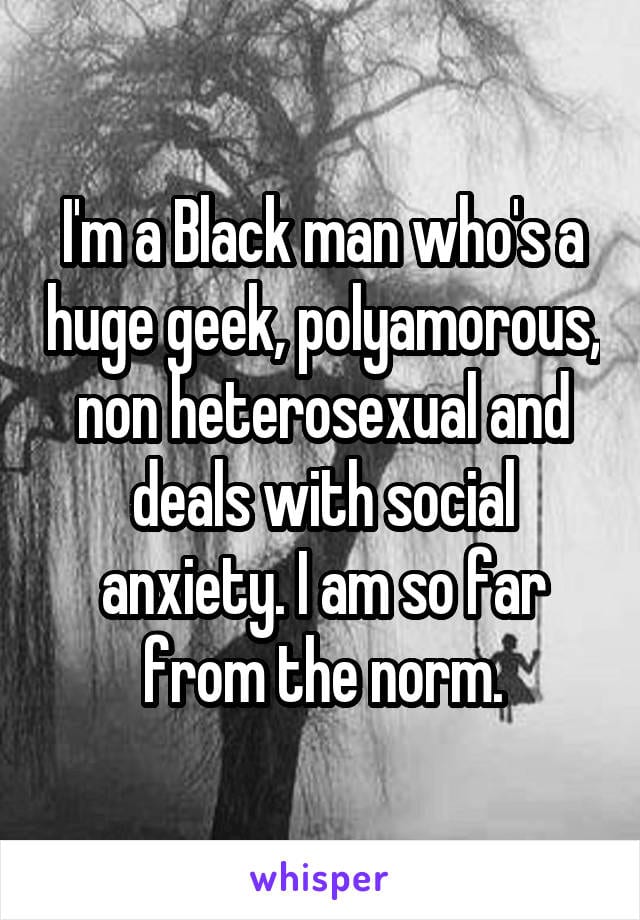
Image credit: Whisper
10. The biggest challenge is often the community
Great strides have been made towards normalization, but it’s not enough yet.
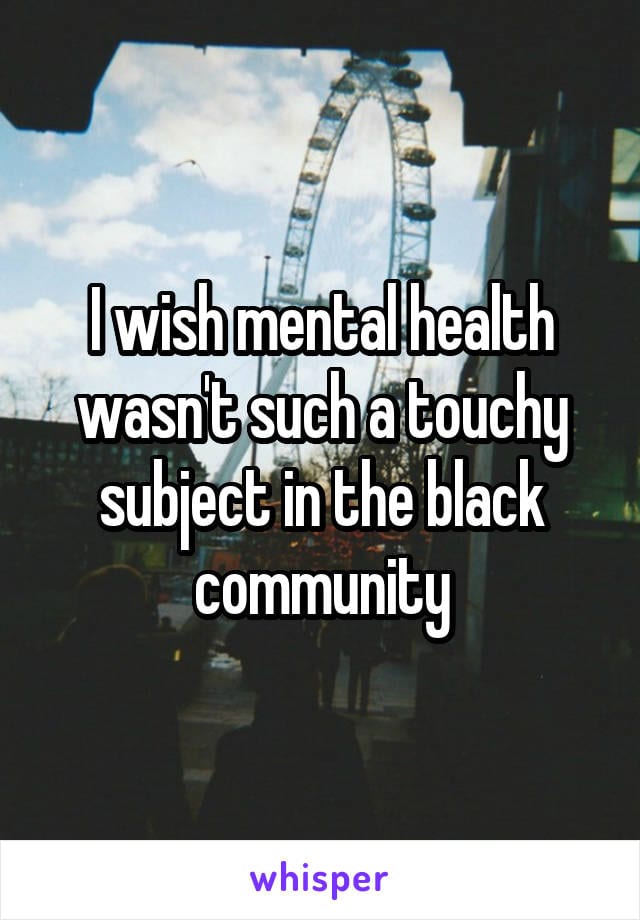
Image credit: Whisper
11. People sometimes think it’s a fake illness born from privilege
But these days the privilege is simply in how it’s handled and accepted.
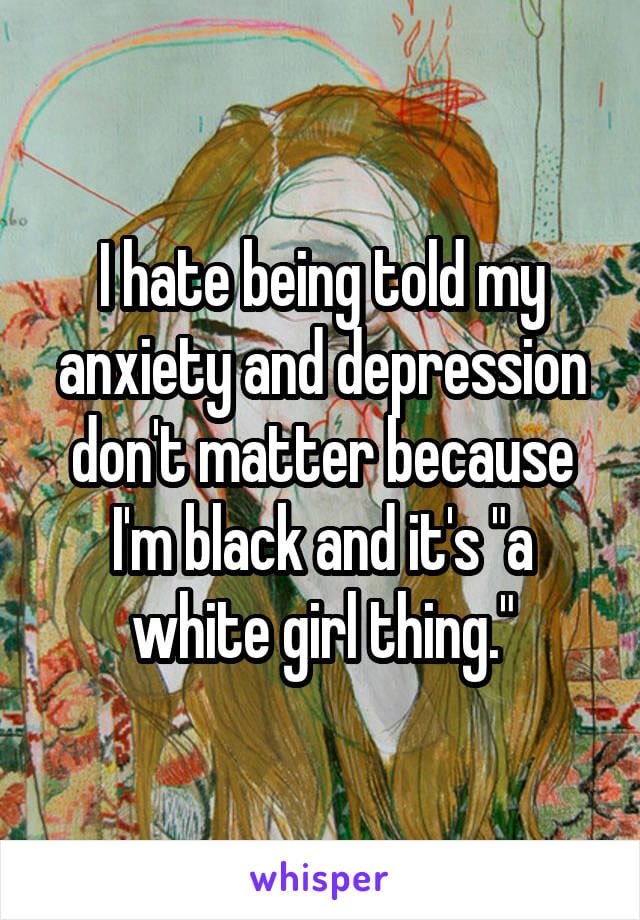
Image credit: Whisper
12. Prayer on its own just may not be enough
That mentality can make it hard to find help when you need it.
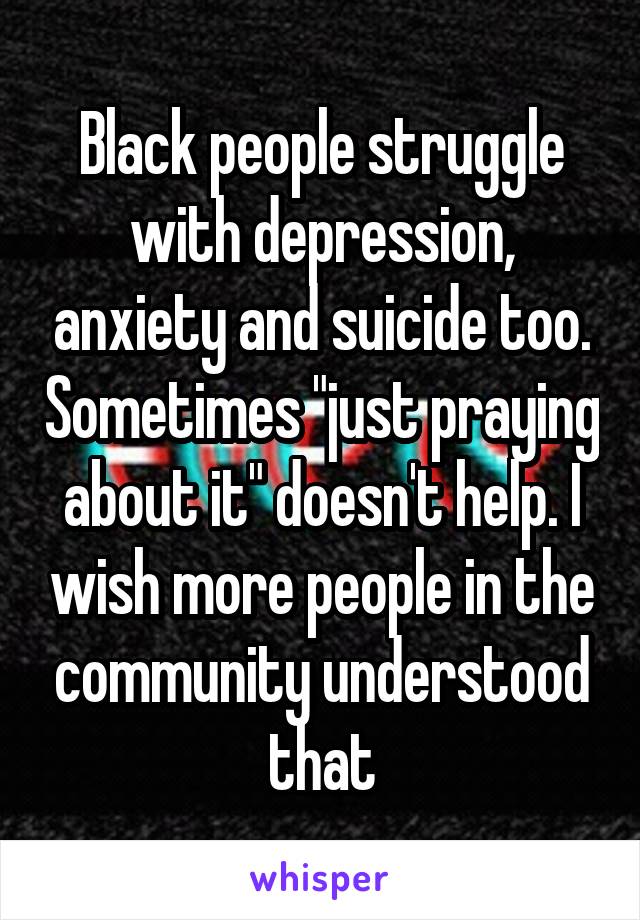
Image credit: Whisper
It’s not easy out there for anyone living with depression, but in the black community it can be particularly hard to find help.
If you or anyone you know needs someone to talk to, you can call 1-800-950-NAMI to speak to someone at the National Alliance on Mental Health.
Do you have thoughts on how we can normalize talking about mental health in all of our communities? Tell us in the comments!

